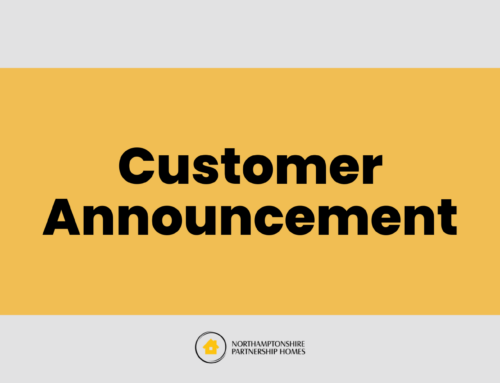
NPH supports national Scams Awareness campaign
Every year, Citizens Advice run a Scams Awareness campaign, supported by National Trading Standards Services.
This week is the first of two Scams Awareness Weeks in 2023, which aim to create a network of confident, alert consumers who know what to do when they spot a scam.
During the first campaign (22-28 May), there’s an additional focus on offering support around home energy improvement and energy efficiency scams, which have rocketed during the cost-of-living crisis.
Identifying a potential scam
It’s important to always keep an eye out for scams. They can and do affect anyone. Something might be a scam if:
- It seems too good to be true
- Someone you don’t know contacts you unexpectedly
- You’re being urged to respond or pay quickly
- You’ve been asked to give away personal information
Common scams can include:
- Email scams – these messages contain links to genuine-looking websites that are designed to steal personal and financial information
- Upfront payment/fee scams – they usually ask for an upfront payment to unlock either a cash prize, a PPI claim amount or for initiating a service
- Doorstep selling – these all begin with the person getting an unrequested knock on their door. They are often for expensive home improvements which the victim did not want or was pressured into
- Investment scams – often conducted either online or over the phone, these can result in people losing thousands of pounds for non-existent stocks, shares and other investments such as rare wine or art
- Antivirus/computer – people are cold-called and told they have a problem with their computer which, for a fee, can be fixed. Alternatively, the victim might initiate the response to an online advert or prompt claiming that their device has been infected with a virus
Be Scam Aware
If you or someone else thinks they’re being scammed, you can visit the Citizens Advice website in the first instance to stay #ScamAware. We’ve pulled together the key advice below:
- Stop and get advice – Contact Citizens Advice online or call 0808 223 1133
- Report scams to Action Fraud – Call Action Fraud on 0300 123 2040 or send a tweet to @actionfrauduk on twitter
- It’s good to talk – Talk with friends, family and neighbours about scams they’ve experienced
If you’ve given someone your card details or access to your bank account, tell your bank what happened straight away. Most banks should reimburse you if you’ve transferred money because of a scam.
And it’s always worth a quick reminder about what to do if there’s someone at your door – whether you’re expecting a visit from us, a contractor on our behalf or another reputable company:
- Check ID badges and do not let people into your home if you don’t know them. NPH staff or contractors working on our behalf will always show ID badges when asked
- If NPH staff or contractors working on our behalf are scheduled to visit a property, you will be notified in advanced by letter, email, text or telephone call. If you don’t have an appointment booked, you don’t have to let us in (no one from NPH or contractors visiting on our behalf will call without an appointment)
- Do not feel under pressure to open the door. Genuine callers will wait while you verify their visit
If you are in any doubt and someone says there from NPH or a contractor visiting on our behalf, please call us on 0300 330 7003 to check.
Useful links for more information
- Citizens Advice – Advice on spotting a scam
- Friends Against Scams – National Trading Standards Team initiative to help protect and prevent people from becoming victims of scams
- Action Fraud – national reporting centre for fraud
- Financial Conduct Authority – spotting the warning signs of financial scams
- Pensions Regulator – Avoid pension scams
- Get Safe Online – Expert tips to help you manage your digital footprint
- Cyber Aware – advice on how to stay secure online from the UK’s National Cyber Security Centre
- Consumer Friend – aims to make consumer rights easy to understand for everyone







